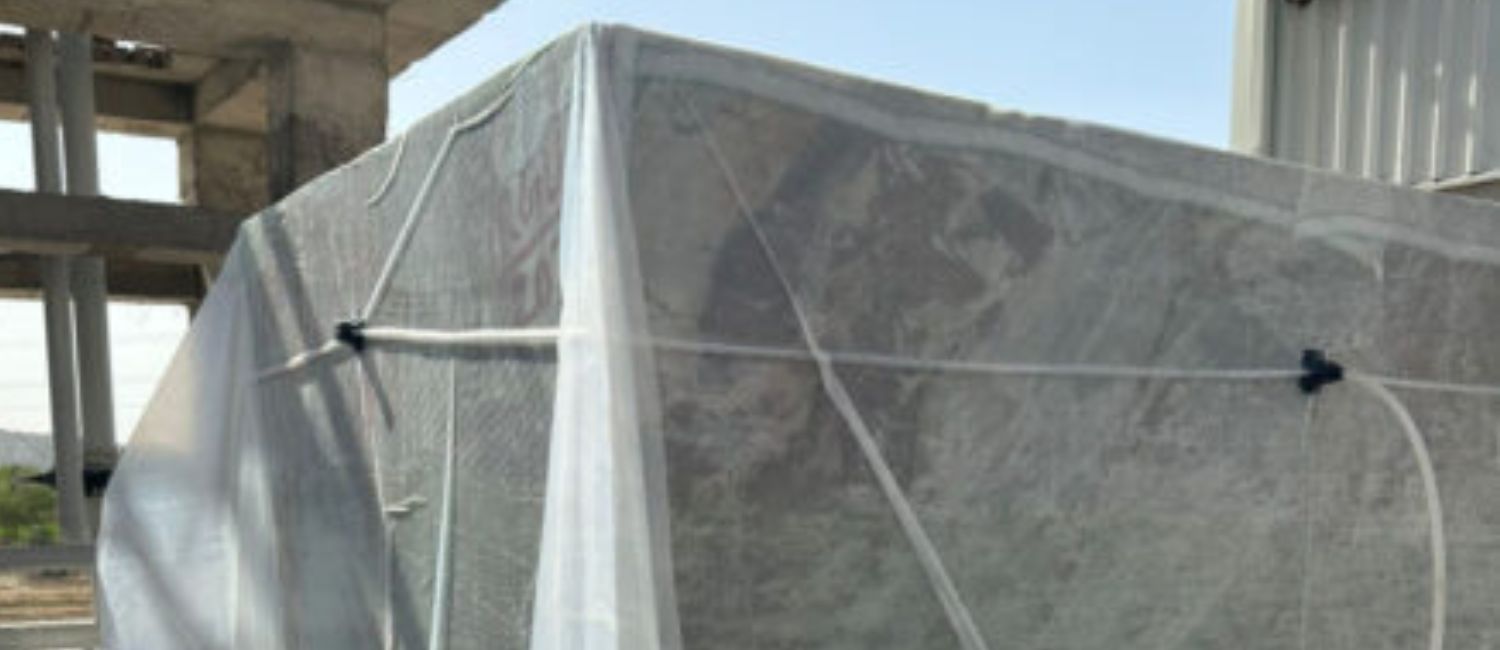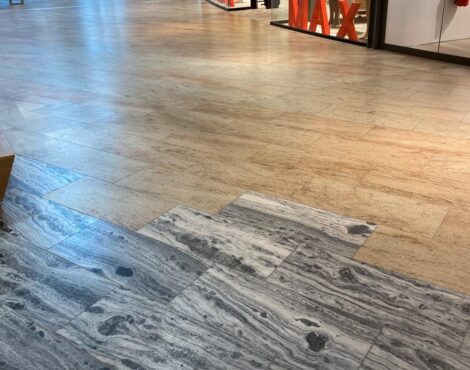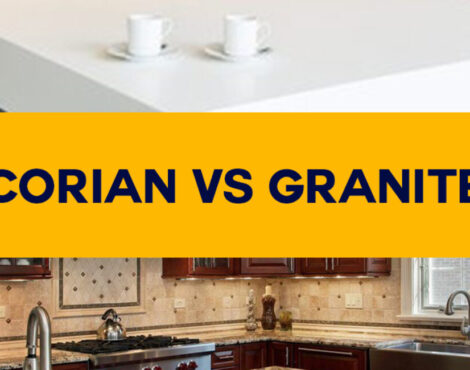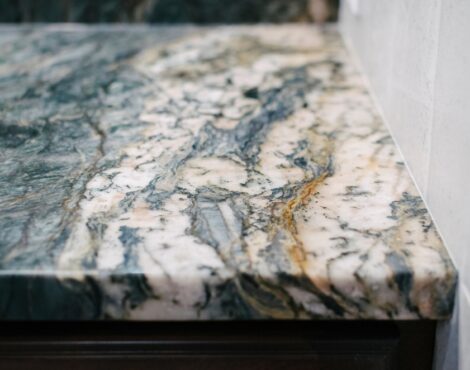Natural stone is an enduring building material that has been utilised for centuries. However, during the manufacturing process, natural stones such as marble and granite are susceptible to cracking and breaking. This can result in substantial material loss and increased production costs. In order to overcome these obstacles, the natural stone industry has developed several techniques for reinforcing natural stone blocks. One of these methods is block vacuuming.
What is Block Vacuuming and Why is it used?
In the natural stone industry, the block vacuum is used to increase the economic value of natural stone blocks previously deemed unusable due to cracks, fissures, and other defects. Block vacuuming is a method for reinforcing natural stone blocks that employs a vacuum pump and epoxy resin.
How is Natural Stone Block Vacuumed?
First, the stone blocks are washed and cleaned to eliminate any dirt, debris, or mud. After being thoroughly cleaned, the blocks are dried and prepared for vacuuming. A vacuum pump is used to evacuate the air from the block, thereby creating a negative internal pressure. The epoxy resin is subsequently injected into the block to fill any cracks or voids. The hoover ensures that the resin is evenly distributed throughout the block, resulting in a product that is stronger and more durable. Resin is typically a two-part epoxy and hardener mixture that is poured into the block through a series of surface-drilled holes.
By removing air and filling voids with resin, the structural integrity of the block is strengthened, allowing it to be cut and processed into slabs, tiles, and other products. This process also enhances the stone’s aesthetic appeal, as the resin can be tinted to match the stone’s natural colour and create a more uniform appearance.
In addition to salvaging damaged blocks, the block vacuum system can also be used to fortify and reinforce blocks that are structurally sound. This process is especially beneficial for luxury and exotic stones, as their natural veins and fissures may require reinforcement to ensure their durability and longevity. By vacuuming and filling the block with resin, the stone can withstand the stresses of processing and handling more effectively, resulting in fewer production losses due to breakage or damage.
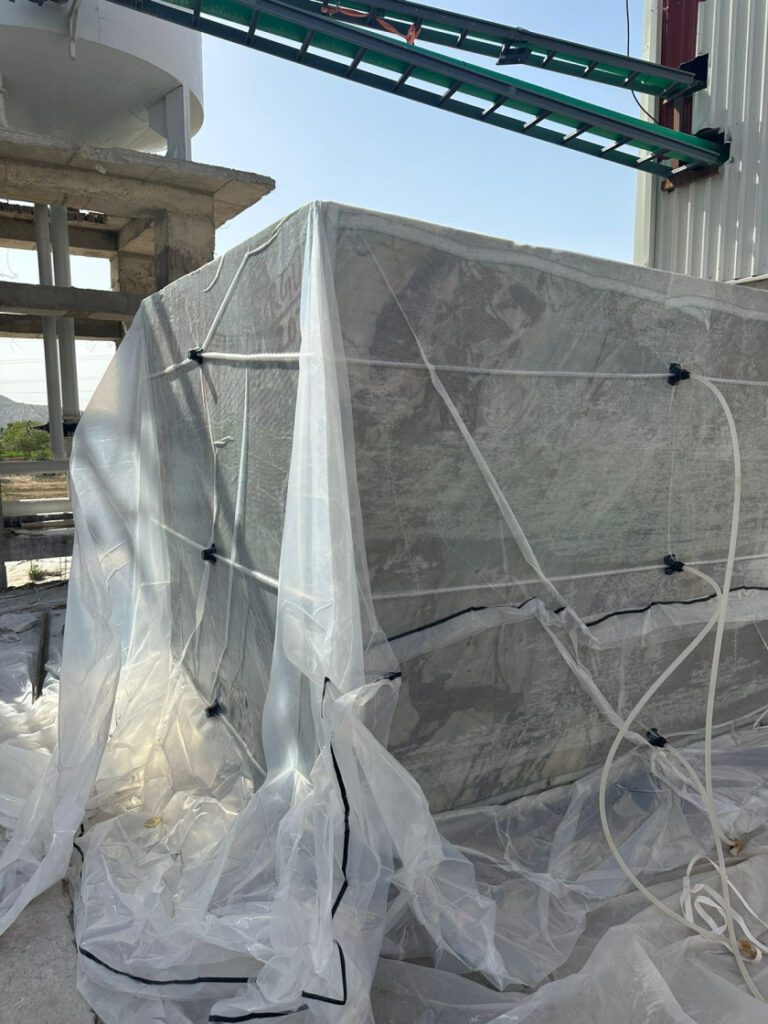
What Kind of Natural Stones can be reinforced using Block Vacuuming?
The block vacuum system is compatible with the majority of natural stone varieties, including marble, granite, travertine, limestone, and onyx. Nevertheless, the application of this technique may vary based on the unique properties and characteristics of each type of stone. For instance, different types of stones may necessitate different vacuum pressure levels or different types of epoxy.
What are the Benefits of Block Vacuuming?
This method has a significant effect on the durability of the final product. The reinforced stone is more resistant to environmental factors such as moisture and temperature fluctuations. In addition, it is less likely to crack or break during cutting or transport, reducing waste and increasing manufacturers’ profits.
How can one determine if a particular natural stone has been vacuumed?
If a particular stone has undergone this process, the presence of epoxy resin can be used to determine this. The resin may appear as a thin layer on the stone’s surface, or it may be embedded within the stone. A professional stonemason or stone dealer should know whether a stone has been vacuumed and reinforced with epoxy resin.
Does Block Vacuuming Affect the Quality of the Products?
No, the vacuuming of blocks does not harm the final product. In fact, it can improve the final product’s quality and durability. The process reinforces natural stone by filling cracks and voids with epoxy resin, thereby making the stone more durable and resistant to damage. It also enables the use of previously unusable blocks due to cracks or other flaws, thereby reducing waste and increasing the economic value of the stone. The vacuuming of stone blocks is a beneficial process that can enhance the quality and value of natural stone products.
The block vacuum system is a significant technique in the natural stone industry that has revolutionised the processing of stone blocks. By vacuuming and reinforcing blocks with epoxy resin, the product’s durability and value are significantly enhanced. With proper application and maintenance, this technique can ensure that natural stone remains a desirable and sustainable building material for future generations.
Stone Galleria
Expect more than just materials from us – expect a partnership built on reliability and responsiveness. We understand the unique needs of the Commercial enterprises, and We are dedicated to providing reliable and cost-effective supply chain management.
Take the first step toward transforming your operations by requesting a free quote today. Simply fill up our inquiry form, and we will promptly get back to you.
Stone Galleria is a leading and prominent manufacturer, supplier, and exporter of Granite, Sandstone and quartzite, which can be manufactured and processed to your specifications for dimension (slabs and tiles), thickness, and multiple finishes.
Knowledgeable – Reliable – Responsive

